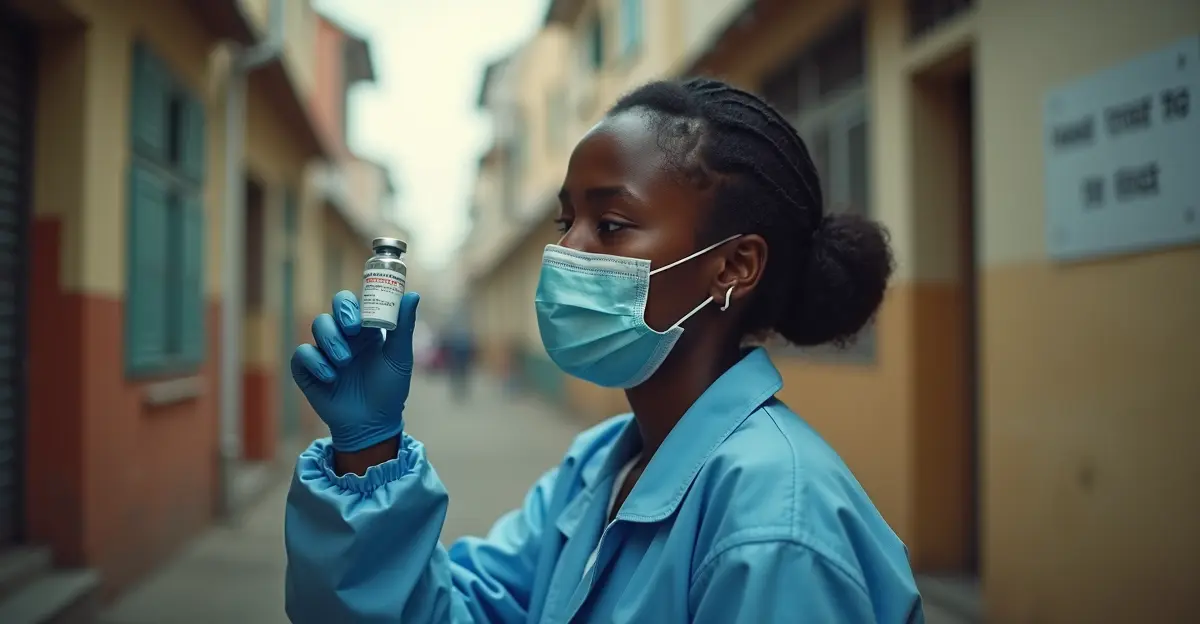WHO alerts on novel viral outbreak clusters threatening global health progress. Enhanced surveillance and accelerated vaccine research needed as multiple regions report unusual disease patterns. Funding cuts and misinformation compound the crisis.

Global Health Emergency: WHO Sounds Alarm on Emerging Viral Threats
The World Health Organization has issued a critical alert regarding a concerning cluster of novel viral outbreaks that threatens to undermine decades of global health progress. The warning comes as multiple regions report unusual patterns of respiratory and vaccine-preventable diseases, prompting urgent calls for enhanced surveillance and accelerated vaccine research.
Surveillance Systems Under Strain
WHO's expanded Global Influenza Surveillance and Response System (GISRS) is now tracking multiple respiratory viruses simultaneously, including SARS-CoV-2 and respiratory syncytial virus (RSV). 'We're seeing unprecedented pressure on our surveillance networks,' says Dr. Maria Santos, WHO's Director of Global Health Emergencies. 'The convergence of multiple outbreaks requires a more integrated approach to detection and response.'
The situation is particularly alarming given recent data showing measles cases reached 10.3 million in 2023 - a 20% increase from 2022 - with 138 countries reporting cases and 61 experiencing large outbreaks. Meningitis cases in Africa have surged with over 5,500 suspected cases and nearly 300 deaths in early 2025 alone, while yellow fever outbreaks are resurging across Africa and the Americas.
Vaccine Research Accelerates
In response to the growing threat, vaccine developers are racing to create new formulations and update existing vaccines. The WHO's updated list of emerging pathogens, released in July 2024, now includes 'Prototype Pathogens' and the concept of 'Pathogen X' - unknown threats that could emerge without warning. 'Our vaccine research pipeline has never been more critical,' notes Dr. James Chen, head of vaccine development at a leading research institute. 'We're working on platform technologies that can be rapidly adapted to new threats.'
The crisis is compounded by significant funding challenges. Nearly half of low-income countries face disruptions to vaccination programs due to reduced donor funding, and in 2023, 14.5 million children missed all routine vaccine doses - up from 12.9 million in 2019.
Integrated Response Strategy
WHO's new Mosaic Respiratory Surveillance Framework represents a fundamental shift in approach. Rather than relying on single surveillance systems, countries are encouraged to implement multiple coordinated methods that work together as integrated networks. 'This isn't just about detecting outbreaks - it's about building resilient health systems that can respond quickly and effectively,' explains Dr. Sarah Johnson, WHO's Technical Lead for Respiratory Surveillance.
The framework sets an ambitious 10-year implementation horizon, aiming for over 90% of WHO Member States to have context-appropriate surveillance mosaics by 2033. Recent outbreaks including cholera, mpox, dengue fever in Africa, avian influenza in Mexico, Nipah virus in Bangladesh, and Oropouche virus in the Americas underscore the urgency of this approach.
Global Cooperation Essential
The WHO, UNICEF, and Gavi have jointly called for sustained investment in immunization programs and urge countries to honor commitments to the Immunization Agenda 2030. 'Vaccines save 4.2 million lives annually and provide a $54 return for every dollar invested,' emphasizes a joint statement from the organizations. 'We cannot afford to lose the progress we've made.'
As nations negotiate the International Treaty on Pandemic Prevention, Preparedness and Response, the current outbreak cluster serves as a stark reminder of the interconnected nature of global health security. Enhanced surveillance, rapid vaccine development, and sustained funding will be crucial in preventing these emerging threats from escalating into full-scale pandemics.

 Nederlands
Nederlands
 English
English
 Deutsch
Deutsch
 Français
Français
 Español
Español
 Português
Português









